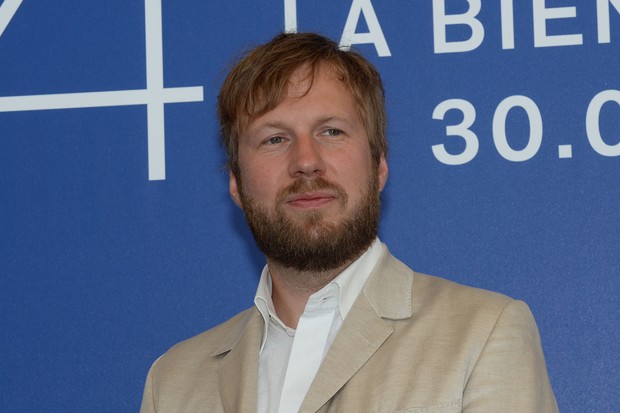Hafsteinn Gunnar Sigurðsson • Director
“We just need to compromise”
by Marta Bałaga
- VENICE 2017: Cineuropa talked to Icelandic director Hafsteinn Gunnar Sigurðsson, whose third feature, Under the Tree, is premiering in the Orizzonti section at Venice

After his debut feature, Either Way [+see also:
trailer
interview: Hafstein Gunnar Sigurdsson
interview: Hilmar Gudjônsson - Shootin…
film profile], proved a festival favourite and was remade as Prince Avalanche, starring Paul Rudd and Emile Hirsch, Hafsteinn Gunnar Sigurðsson was named one of Variety’s Ten European Directors to Watch. Now back with a third feature, Under the Tree [+see also:
film review
trailer
interview: Hafsteinn Gunnar Sigurðsson
film profile], which is premiering in the Orizzonti section at Venice, the Reykjavik-born director talks to Cineuropa about neighbourly disputes, unlikeable characters and why now, more than ever, we all need to learn to compromise.
Cineuropa: People often say that it’s important to respect the ordinary. But in Under the Tree, you show that we are all only one step away from descending into pure chaos.
Hafsteinn Gunnar Sigurðsson: What drew me to this material was the thought of exploring neighbourly disputes. When you think about it, they usually revolve around some minor issues that quickly get blown out of proportion. The people involved are usually respectable and “normal” – like you and me, or our parents. And yet they just completely lose any self-control or their dignity. I find it fascinating how situations like this can drive ordinary people to such crazy behaviour.
Why do you think people act in such an absurd way? In your film, a neighbour merely asks the other one to trim his tree, which is casting a shadow on his plot of land.
People are very sensitive when it comes to their homes. It’s their territory. “Nobody is going to tell me what I can or cannot do in my house” – that’s the thinking behind it. If somebody wants to have a tree in his garden, it’s his right. Or, at least, that’s how he sees it. So when these boundaries are suddenly not respected, it’s easy to lose control.
Under the Tree is not based on one specific case, but in Iceland, such disputes are actually quite common. If you happen to have a tree in your garden, of course you don’t want to let it go. At the same time, we don’t get too much sun either [laughs]. It’s a dilemma that’s difficult to resolve in a diplomatic way. Still, you could easily read that story as a situation involving two different countries or two ethnic groups. If you think about it, war is very often a neighbourly dispute, but on a very, very big scale.
Your use of sound and music is very unsettling.
My take on this script was to treat it like a thriller, which turned out to be quite challenging, because you are right – I am showing everyday life and a peaceful neighbourhood. I wanted the score to be something more; I didn’t want it just to accompany the image. We talked about it a lot with my composer, Daniel Bjarnason. I wanted to make a bigger statement and use the music to prepare the audience emotionally for the ending, which they may not be expecting.
Was it always your aim to talk about characters that are not exactly likeable? Everybody here is broken in one way or another.
I still care about them; I have sympathy for them. But yes – what they do may not always be that likeable. It’s interesting when you don’t agree with the characters or with what they are doing. They often make the wrong decisions, but at the same time, I think we can understand them. Because who is right in this film? The one who wants the neighbours to cut down the tree, or the one who wants to save it? It all depends on whom you talk to. What it all comes down to is that we all have flaws, and I guess we just have to live with them and embrace them, although my characters are taking it a bit too far. Living in a society or in a community of any kind is based on our ability to compromise. And if we don’t, then yes, we can end up doing some really crazy things.
Do you think a compromise like that is even possible? Even from a political standpoint, we are not exactly ready to welcome another human being into our lives.
That’s one of our biggest problems. Because where do you go from there? Maybe the message in this film is that we just need to compromise. We need to be considerate because this constant lack of understanding and communication is proving more and more problematic. The problem with this particular family is that they all experienced a huge tragedy and they just can’t talk about it. People prefer to keep their distance. They just keep sweeping everything under the carpet until they can’t any more. And then, things just boil over.
Did you enjoy reading this article? Please subscribe to our newsletter to receive more stories like this directly in your inbox.
















